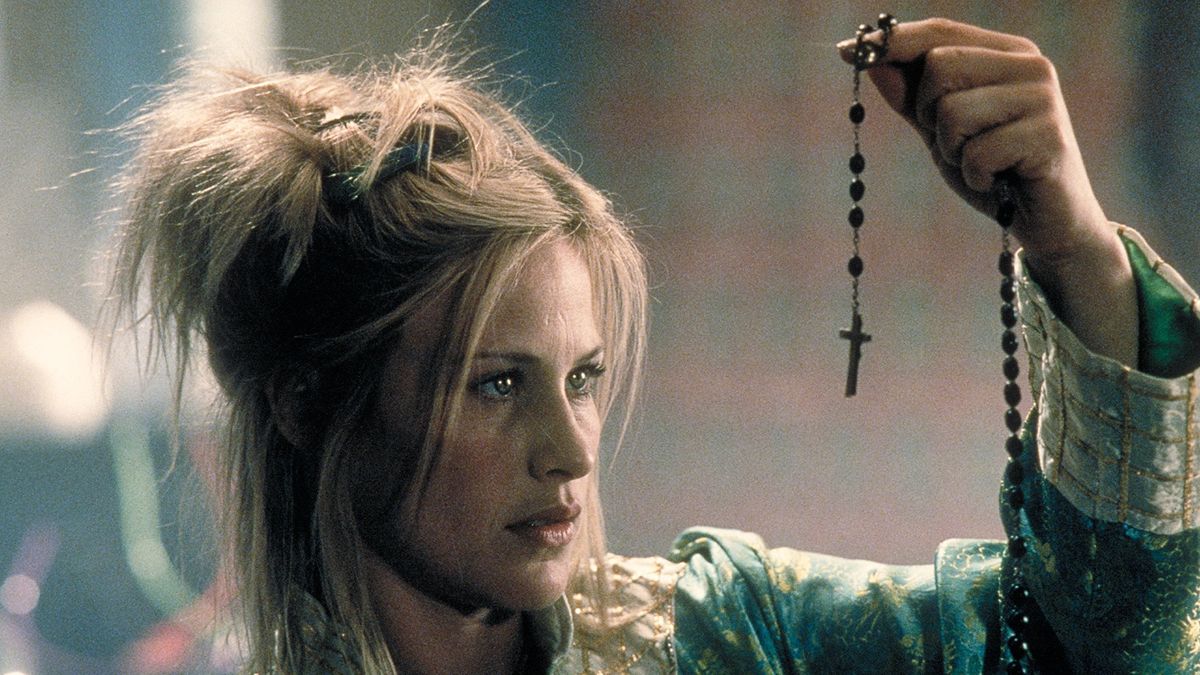“Possessed by faith, hunted by the Church, she carries the gospel no one wants you to hear.”
Stigmata (1999) blends supernatural horror with religious thriller, unraveling a chilling tale where faith, mystery, and possession collide. Directed by Rupert Wainwright, the film dares to question the boundaries between divine experience and demonic torment—through the body of an unsuspecting woman.
The story follows Frankie Paige (Patricia Arquette), a young, non-religious hairdresser living in Pittsburgh who suddenly begins experiencing the violent wounds of the crucifixion—known as the stigmata. As the inexplicable phenomena worsen, the Vatican dispatches Father Andrew Kiernan (Gabriel Byrne), a former scientist and current investigator of miracles, to determine whether her suffering is a sign from God—or something more sinister

What begins as a case of spiritual intrigue soon becomes a war between faith and fear. Frankie’s wounds mirror those of Christ, but her possession also unleashes an ancient, forbidden gospel that challenges the authority of the Catholic Church itself. As the Church seeks to suppress the truth, Father Kiernan finds himself torn between his loyalty to the Vatican and his growing empathy for Frankie.
Visually, Stigmata is atmospheric and intense, with rapid-fire editing, eerie dream sequences, and bold uses of color and shadow. The soundtrack, featuring contributions from Billy Corgan and the band Massive Attack, adds a modern, industrial edge that keeps the tension simmering throughout.

More than a horror film, Stigmata delves into questions of organized religion, spiritual authenticity, and suppressed truths. It is both a psychological thriller and a spiritual provocation—one that leaves viewers unsettled, questioning where divinity ends and human control begins.

-1751437042-q80.webp)

